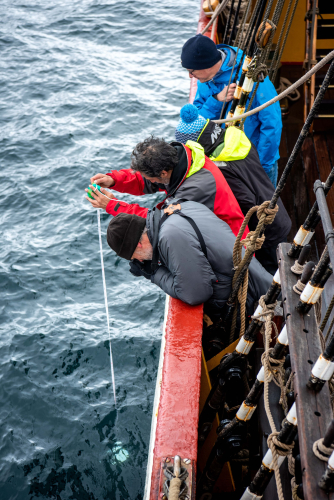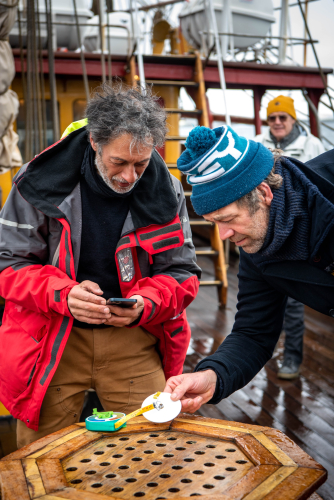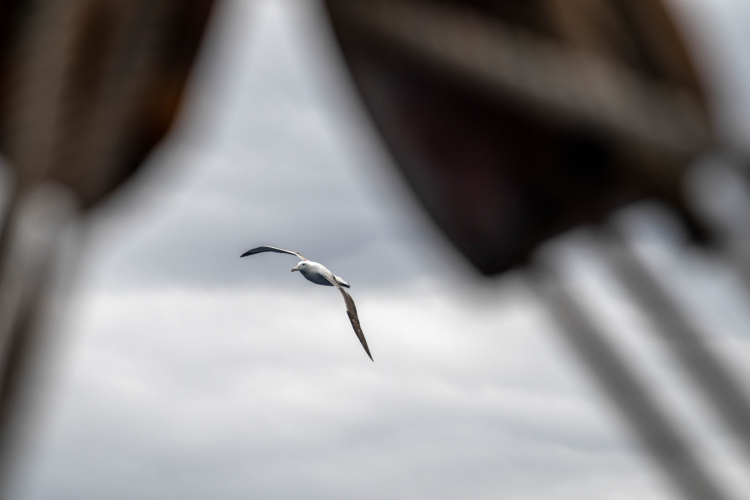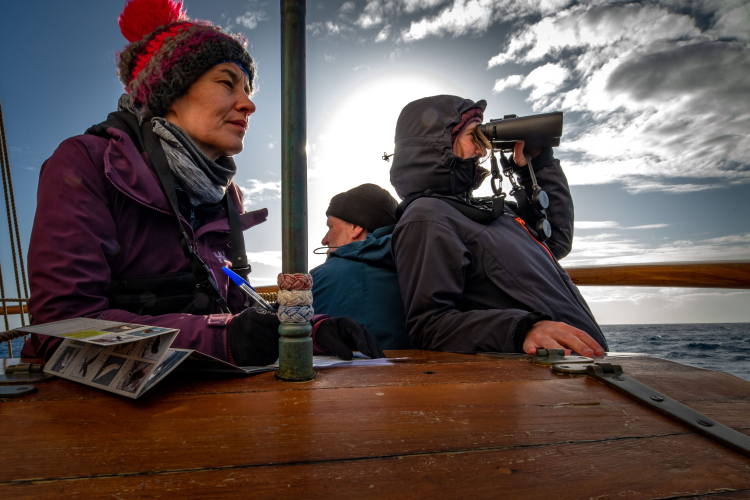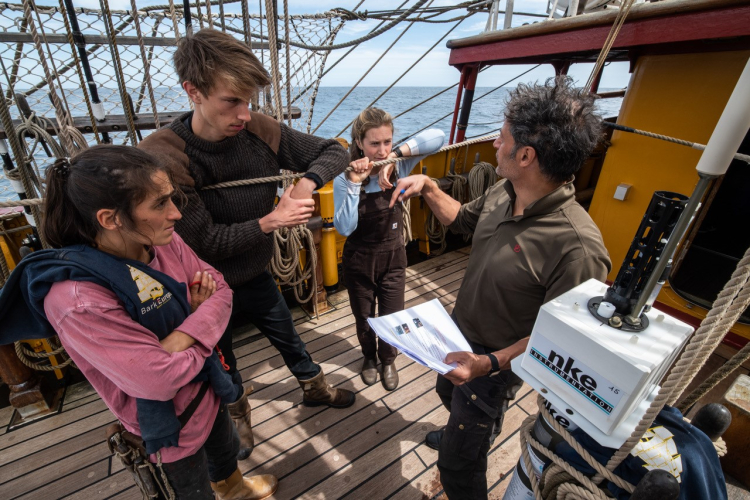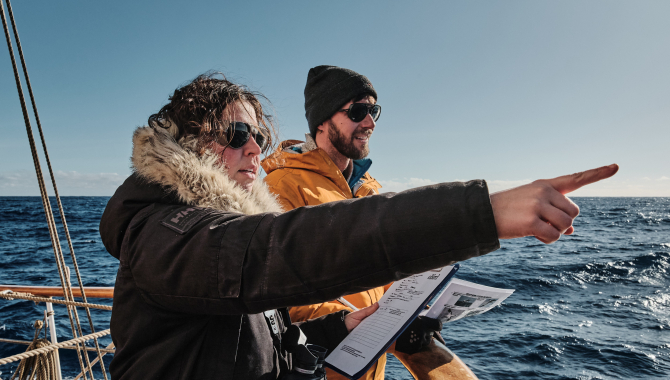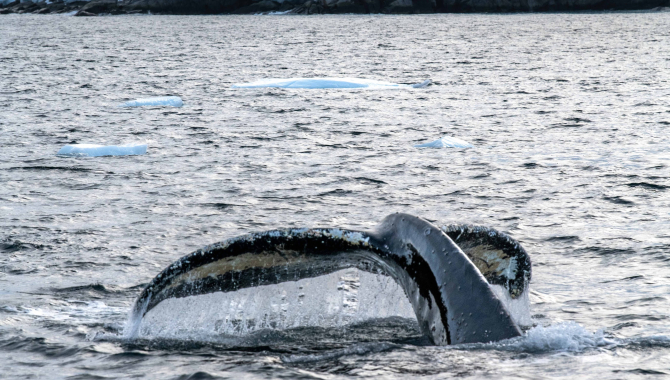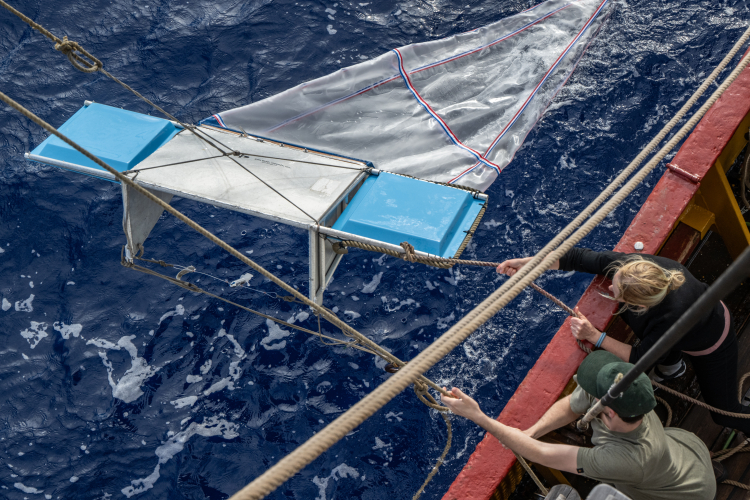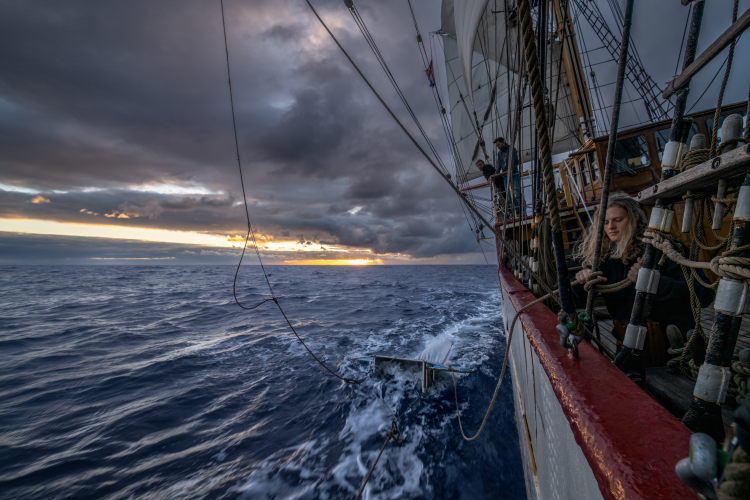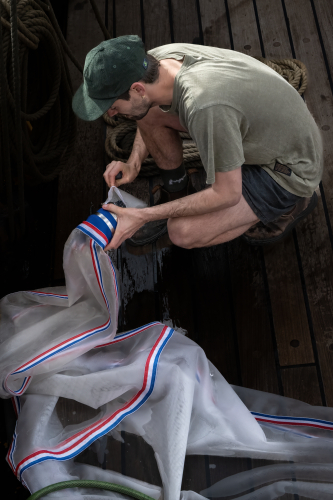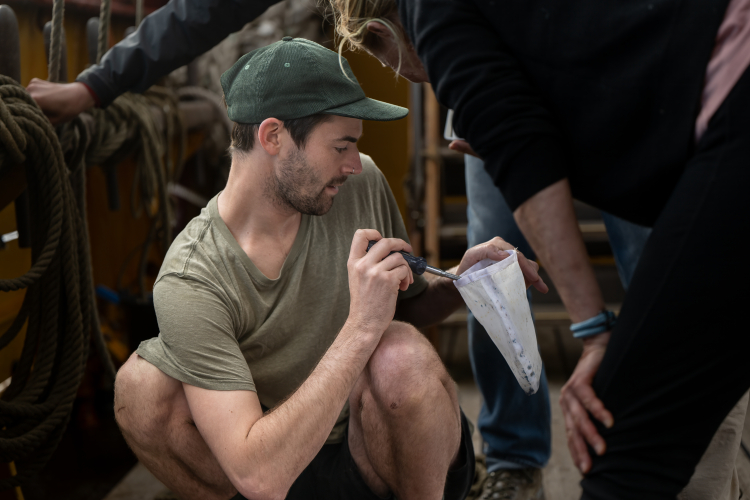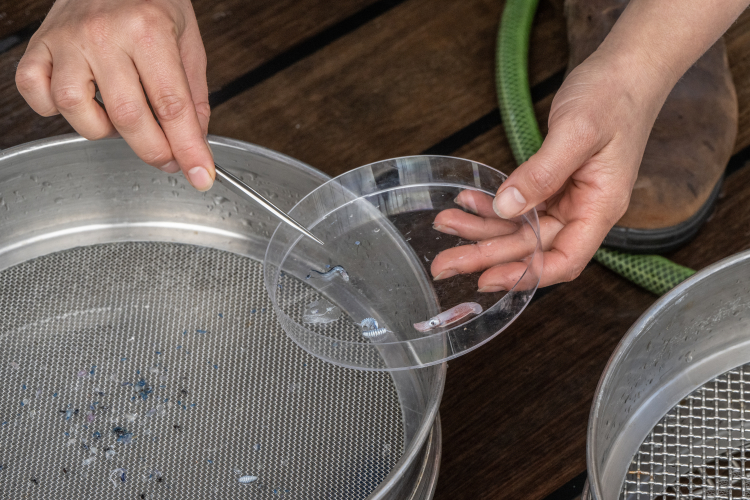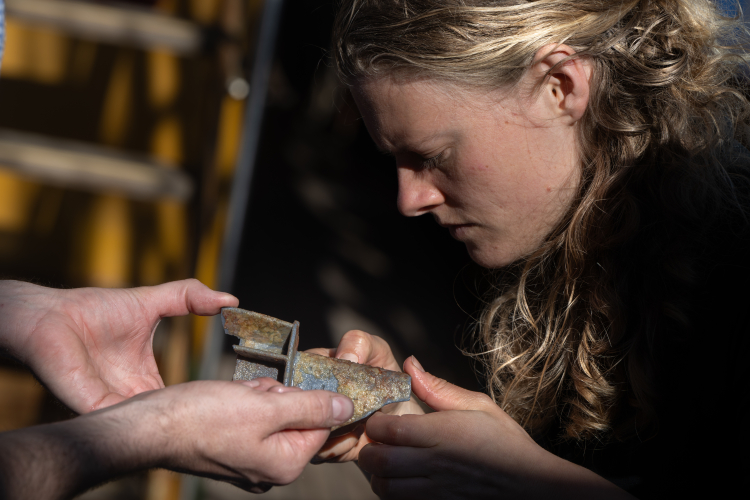Research on board
Sustainability and research
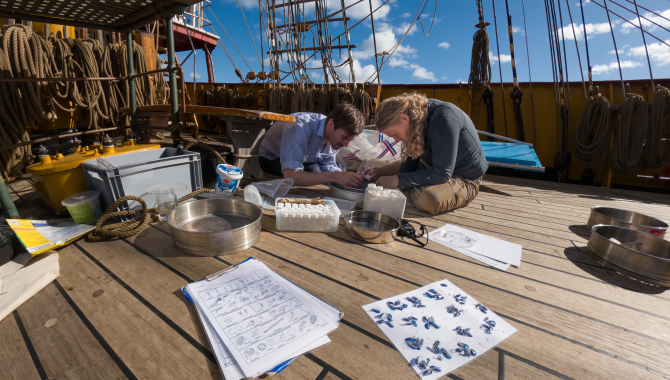
During a long crossing with Bark EUROPA, the ocean may sometimes appear as a vast empty space. Ten minutes of trawling show otherwise, revealing a world on its own with microscopic animals.
Bridging science and adventure
For long ocean crossings EUROPA welcomes scientists on board, carrying out research projects. We have been joined in the past by oceanographers, astronomers and marine biologists. The presence and knowledge of students and researchers on board is highly appreciated by our crew and trainees. The researchers involve our guests in their oceanographic studies by presentations, organizing special on-board exhibits, discussions and hands-on trawling work, allowing us a greater appreciation for the abundance of organisms inhabiting the oceans.
Working together
Just as on a sailing ship, collaboration is essential for preserving nature and combating climate change. By working together with universities and research platforms, we hope to connect the scientific world with our world at sea. Scientific knowledge is brought to a wide audience and helps to create more awareness, inspiring our guests to commit to the oceans they have just sailed. This way we create a network of oceanists around the world, a team dedicated to the oceans, striving for improvements in plastic reduction, carbon emissions and biosecurity.
Citizen science in Antarctica
Since 2022, Bark EUROPA has been collaborationg with the Polar Citizen Science Collective to pormote scientific research in polar regions and to provide guests with greater insight into these remote areas during our voyages. By focusing on these projects during our crossings of the Drake Passage and in Antarctica, we find that our guests become more aware of their surroundings than before, leading to engaging conversations about ocean currents, water temperatures and seabird species.
In collaboration with Polar Collective and FjordPhyto, we collect data together with our onboard guests for projects such as HappyWhale, the Open Ocean Seabird Survey, and FjordPhyto.
Plastic research during ocean crossings
During our ocean crossings we collaborate with the Ocean Clean up to deepen our understanding of oceanic plastic pollution, examining both the extend of plastic waste and its origins. Data from this research will enrich The Ocean Cleanup's global database, pinpointing hotspot regions for cleanup efforts and guiding policy and technology solutions to reduce plastic pollution.
Scientists from the Ocean Cleanup and students collaborating on these projects serve as on board researchers during our crossings, sharing insights on the oceans (marine biology and ocean sciences) and plastic pollution with our guests. A surface manta trawl is deployed to sample floating plastics after which these are collected and categorized. Additionally, plankton found in the cod ends are photographed and cataloged to explore species interactions with plastic densities in the marine ecosystem.
